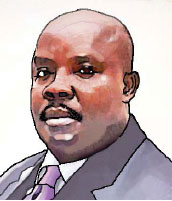One thing the report by Amnesty International on the May 30 Onitsha/Nkpor, Anambra State, mayhem exposed last week is the despicable level Nigeria has degenerated in its disposition towards its own people.
Yes, there are disagreements on how many members of Movement for the Actualisation of the Sovereign State of Biafra (MASSOB) and Indigenous Peoples of Biafra (IPOB) felled by security agents during their rally in commemoration of the 49 years of declaration of the defunct Republic of Biafra.
Amnesty, in its report, indicated that 17 people were killed, with scores wounded. Independent sources placed the casualty rate higher than 50, while the Army claimed that its personnel killed only five MASSOB/IPOB agitators.
In a confusing situation as this, discrepancies in the casualty figure cannot be ruled out. In similar way, disputations on modes of operation by the respective parties could be expected. While the agitators maintained that they were peaceful and non-violent, the Army claimed they were armed and destructive. The situation is, thus, bound to be that of accusations and counter-accusations.
But one thing that has remained recurrent is the frequency of clashes between the Army and the pro-Biafra youths. There is also the chilling aspect of the number of victims that trails such encounters.
Statistics from Amnesty International, for instance, indicates that between August 2015 and May 2016, there have been at least five similar incidents in Onitsha alone where the police and military shot unarmed IPOB members and supporters.
On December 17, 2015, the military killed five people when they opened fire on members of the group who were demonstrating in Onitsha in a celebration of a court order for the release of their leader, Nnamdi Kanu, who is still in detention.
Similar acts of high-handedness by security men against the pro-Biafra agitators resonate in other parts of the South East. Last February, the military used excessive force to disperse a peaceful gathering in a school compound in Aba, Abia State. At least, nine people were killed and more injured in the exercise.
The Nigerian government, curiously, has not conducted any independent investigation into any of these incidents. It has also not made any statement or taken any action indicating its aversion to the application of maximum force against the protesters, whose only offence, in these instances, is their demand for self-determination.
In a country that parades a constitution that professes freedom of association and right to assembly, this should not have been the case. But the peculiarity of the Nigerian situation, sadly, makes it so.
And the leaders know what the issues are. It is about justice and equity that successive leaders of the country had turned blind eyes to over time. It is, incidentally, this ostrich disposition that is drawing sympathy and attracting legitimacy to the demands of the pro-Biafra activists and similar organisations in other parts of the country.
Ordinarily, among the Igbo, there may not be consensus on the agenda and strategies of the agitators. There may, for instance, be issues of leadership, timing and space constraints in the Biafra enterprise. In that case, it may not be a project that may even sail through among the mainstream Igbo elite or the populace.
But a resort to the strong arm tactics of forcing the people to extinguish the thought without offering them a convincing alternative is bound to be counter-productive.
The daring stance of the agitators in going about their agenda, even in the face of murderous tactics of the Army, is a tricky dimension of the struggle that the government cannot continue to gloss over.
After the February attack on the agitators in Aba, for instance, IPOB leadership issued a release warning that further unprovoked attacks on its armless members would see them resorting to arm struggle.
That was a proclamation that should give concern to every right-thinking person. But the government does not seem to be bothered at that.
We should, for now, count ourselves lucky that the IPOB has not toed this fatalistic route. But how far this grace would go may not be easily determined. Government is not helping matters in this respect. When it repeatedly courts leadership of the terrorist Boko Haram for truce without success, seeks out arrowheads of Niger Delta militancy, but, on the other hand, unleashes its security agents on non-violent pro-Biafra operatives, it perhaps, unwittingly lends weight to the allegation of double standard against it.
It is also, by that, sending the impression that a movement needs to be violent before government can go into negotiations with it. But that is not what it should be. The template for human relations has, if anything, changed for rapprochement and proactive engagement.
In the new world order that is characterised by dialogue, even among hitherto sworn enemies, Nigeria cannot afford to be continuously at war with some sections of its citizenry. What is presently needed in taming the IPOB agitation is a sincere discussion on the demands by the activists.
This will not cost the government much. If anything, it would afford it more mileage at offering the country peace, than constantly engaging the IPOB boys that are increasingly being pushed to call the bluff of the bullets from the armed forces.

- Advertisement -
- Advertisement -
Must Read
Ancelotti wins Intercontinental Cup, becomes Real Madrid’s most successful manager
Ancelotti with the feat surpasses Miguel Muñoz, who managed Real Madrid from 1959 to 1974 and won 14 trophies












